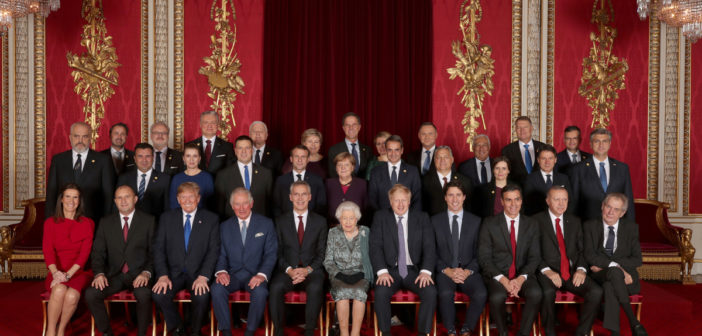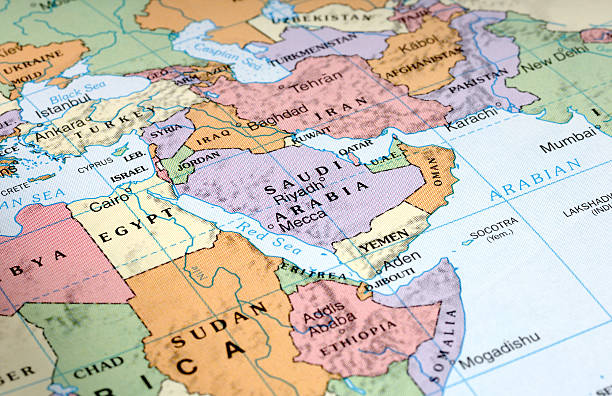
Literature on “The Art of Human Survival” will have you believe that to have reached the age of seventy must be a testimony for having mustered this art. But for a military alliance to have functioned, changed, adapted and enlarged for seventy years would mean significantly more than mere survival, but an unequivocal success. While ripe and mature age seventy for a human being deserves celebration albeit with an eye on life expectancy averages, for a military alliance such celebration would call for unreserved pride and a solemn commitment to cohesion, collective re-dedication to allied goals. But those were not the type of public announcements or more discreet messages that were coming from the London Summit to celebrate NATO’s 70th anniversary.
Although that must be a cause for disappointment, it was not a surprise for those who were monitoring the process leading up to the event. While national chanceries at Allied capitals will have their own choice of culprits to blame for this somewhat disheartening outcome, the responsibility must be collectively shared. That said , the annals of NATO history will have recorded President Trump’s earlier remarks questioning the credibility of mutual defense and the American commitment to the enduring validity of transatlantic security ties, President Macron’s jolting commentary about the cerebral health of the Alliance, President Erdogan’s vexing remarks and actions which led to serious doubts as to Turkey’s reliability as an ally.
The fact that a Summit Declaration was issued should not be seen to mitigate the dire circumstances the Alliance finds itself in, neither should it alleviate the valid concerns. The diplomatic exercise for launching a celebratory Summit had to shift into a totally unnerving track for damage limitation, not to say crises management. It would have been unthinkable for the Summit to end without a declaration, but to conclude with a press conference by Secretary General Stoltenberg where he would unconvincingly paper over the reasons underlying this outcome.
It would be for foreign and security policy pundits to read and interpret between the lines, but let us take a quick look at the following excerpts from the Declaration;
“… NATO guarantees the security of our territory and our one billion citizens, our freedom, and the values we share, including democracy, individual liberty, human rights, and the rule of law …
“… We reaffirm… our solemn commitment as enshrined in Article 5 of the Washington Treaty that any attack against one ally will be regarded as an attack against us all …
“We, as an Alliance, are facing distinct threats and challenges emanating from all strategic directions. Russia’s aggressive actions constitute a threat to Euro-Atlantic security; terrorism in all its forms and manifestations remains a persistent threat to us all. State and non-state actors challenge the rules-based international order. Instability beyond our borders is also contributing to irregular migration.
“… We stand firm in our commitment to fight against terrorism and are taking stronger action together to defeat it …
“…We are addressing… in measured and responsible way Russia’s deployment of new intermediate- range missiles which brought about the demise of the INF Treaty and which pose significant risks to Euro-Atlantic security…..As long as nuclear weapons exist NATO will remain a nuclear alliance…..We remain open for dialogue and to a constructive relationship with Russia when Russia’s actions make that possible.
“… We have declared space an operational domain for NATO …
“… We recognize China’s growing influence and international policies present both opportunities and challenges that we need to address together as an Alliance.
“Taking into account the evolving strategic environment, we invite the Secretary General to present to Foreign Ministers a Council-agreed proposal for a forward-looking reflection process under his auspices, drawing on relevant expertise, to further strengthen NATO’s political dimension including consultation.”
Admittedly this is a modest declaration both in substance and the process with which it was issued. It fails to reflect the sense of confidence that must reside in the Alliance’s unprecedented longevity and self-congratulation for having achieved it. But London Declaration must be applauded for the fact that against the adverse developments lying in the backdrop the summiteers were able to make the sensible political choice of issuing it rather than pursuing their hot-headed goals.
President Trump, while vocal in unsettling his counterparts during his bilateral meetings and subsequent press conferences, appears to have acquiesced to reaffirm the commitment enshrined in Article 5, something that he alarmingly questioned in the past. This may well be influenced by the galloping process of impeachment at the home turf, back in Washington.
President Macron, having stood by and in his somewhat lonely corner for declaring the Alliance dysfunctional, not to say stone-dead, has agreed to the Declaration’s language signifying that NATO is alive, kicking and prepared to kick with greater punch than before. He also demonstrated the flexibility to consent to the regular rhetoric on NATO-Russia relations, that is the Alliance is open for dialogue when Russia’s presently inadmissible actions make it possible.
President Macron said after the Summit that no consensus could be reached with Turkey on defining terrorism. “We do not agree to classify the YPG-PYD as a terrorist group,” he told reporters.
After Chancellor Merkel announced in October last year that her fourth term as Germany’s chancellor will be her last President Macron has missed no opportunity to assume Europe’s leadership role with a keen eye on domestic politics. How far he would go in fulfilling this task remains to be seen. It appears that he sees Turkey-bashing as a good card at this juncture but he also needs to weigh the long-term impact of this on Turkish-French relations.
On the question of flexibility, no participant seems to have surpassed that of the Turkish President who in his own admission has engaged in a test of wills to have his counterparts to yield the ground for him to declare YPG a terrorist outfit, or else the Polish/Baltic construct leaves the Summit without an updated defense plan. Seen in the context of his much liked give and take based transactional approach , it was not evident in the Secretary General’s couched words at his press conference as an answer to persistent questioning by the press corps as to what the take was in return for agreeing to update these defense plans. The generic reference to terrorism in all its forms constituting a persistent threat and to a commitment to take stronger action to fight it does not nearly win this bout for President Erdogan.
In its first paragraph the London Declaration underlines the values allies share, including democracy, individual liberty, human rights, and the rule of law. Turkey’s leadership must read this message carefully because it is not solely addressed to countries beyond NATO.
The last tick of excerpts above, the one inviting the Secretary General to propose the modus operandi for a forward-looking reflection process must a be tightly worded but oblique reference to a much touted “wise men group exercise” arrangement. This is not unique to NATO and the Alliance has launched similar exercises in the past. We as a matter of professional reflex, regard the so-called instrument of wise men of outside expertise to be entrusted to advise the bureaucracies with some skepticism. It seems that has also been the perspective of the summiteers, evidenced by the explicitly inscribed, “… under Secretary General’s auspices and a Council- agreed proposal to be presented to ” no less than “Foreign Ministers”. We are not holding our breath that a potential proposal to set it up will accomplish what has so far eluded the political masters. That is to reign in the strong incentives and harmonize diverging interests to achieve a relatively common perception and definition of risks and threats.
It must be said that, leaving China, as a new factor collectively to reckon with aside, Russia remains the constant and existential element as a force that drives the Alliance’s perception that closely concerns its vitality. The adroit diplomacy of Russia, its masterful deployment designed to exploit the opportunities to maximize its sway an Western interests is at the core of what the Alliance has failed to rectify. The London Summit or the ensuing efforts are unlikely to do it for NATO, unless the Allies come to rationalize that there is no better deal than making this institution to work more effectively.
Just two days before NATO’s London summit, Russia switched on an enormous gas pipeline to China worth billions of dollars. Chinese news agency Xinhua reported that the pipeline is scheduled to provide China with 5 billion cubic meters of Russian gas in 2020 and the amount is expected to increase to 38 billion cubic meters annually from 2024, under a 30-year contract worth 400 billion U.S. dollars signed between the China National Petroleum Corp (CNPC) and Russian gas giant Gazprom in May 2014. The cross-border gas pipeline has a 3,000-km section in Russia and a 5,111-km stretch in China.
Vladimir Putin and Chinese President Xi Jinping participated in the launch ceremony of the Power of Siberia gas pipeline via teleconference and made comments.
President Putin said, “This year marks the 70th anniversary of the establishment of diplomatic relations, and this year we begin supplying Russian pipeline gas to China. This step takes Russian-Chinese strategic energy cooperation to a qualitatively new level and brings us closer to the goal we set with President of China Xi Jinping to increase bilateral trade to $200 billion by 2024.”
President Xi Jinping responded by saying, “We agreed that promoting China-Russia relations will remain our countries’ foreign policy priorities. We will steadily work to expand strategic interaction and cooperation in a variety of areas.”
It is only to be expected that Moscow would not be pleased to be put in the category of distinctive threats together with terrorism. So, the switching on of the gas pipeline to China on the 70th anniversary of the establishment of Chinese-Russian diplomatic relations can be read as a message to NATO on its 70th anniversary.
………………………………………………………………………….
(*) Yusuf Buluc is a retired Turkish Ambassador and a former Head of NATO’s Department of Defense Plans and Policy.
Ali Tuygan, Ambassador (Ret’d) and former Undersecretary of the Turkish Foreign Ministry. The article is also published on his blog.









